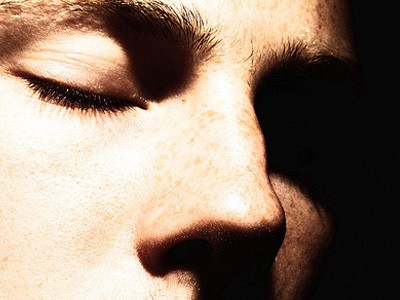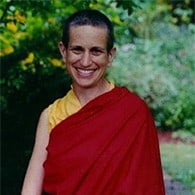Let the mind see the mind
By G. S.

I came across this saying, “let the mind see the mind,” and wow! What a profoundly simple line of words that really struck a cord with me.
My practice goes well. I am seeing the refining process more every day. It is like the refining of gold. Living the ethical life facilitates this process so much, pointing out the impurities and making it easier to eliminate them.
Sure it isn’t easy, but then no one ever told me it would be. I am constantly having to remind myself of my vows, the eight precepts which I accepted for life. This is a great preliminary to full monastic ordination. At least for me, it has proven to be a valuable tool in this sense.
Each morning I begin my day by rolling out my meditation rug, setting up my makeshift prison altar, and letting my forehead touch the floor as I reaffirm my vows. Each day I screw up and each night I purify. And each morning, for some reason, I am again compelled to roll out my meditation rug, set up my makeshift prison altar, and touch my forehead to the floor as I reaffirm my vows.
Then I sit and sit and sit through this refining process of allowing the mind to see the mind. The more I do this, the more I find the trickery of the ego-mind, which seems to be fighting for its very existence. This is insane, ironic, or whatever other term you’d like to use, because it is the mind—my mind—that is creating all this illusion, this mental battle. It is my mind that creates two sides in a battle and causes me to see the world as “us vs. them,” when, in reality, there is no “us” and there most assuredly is no “them.”
Dogen said, “In the instant of my enlightenment, all beings are enlightened.” What a lofty statement, but it’s very true. Why? Because in the instant of enlightenment, there is no “us and them,” there is no bias or attachment. One of my teachers used to say, “You must die on the cushion.” Let go, let go, let go. The absence of perceived control over what we perceive as our universe has to be released. This is a scary process. But let go we must!
Incarcerated people
Many incarcerated people from all over the United States correspond with Venerable Thubten Chodron and monastics from Sravasti Abbey. They offer great insights into how they are applying the Dharma and striving to be of benefit to themselves and others in even the most difficult of situations.


